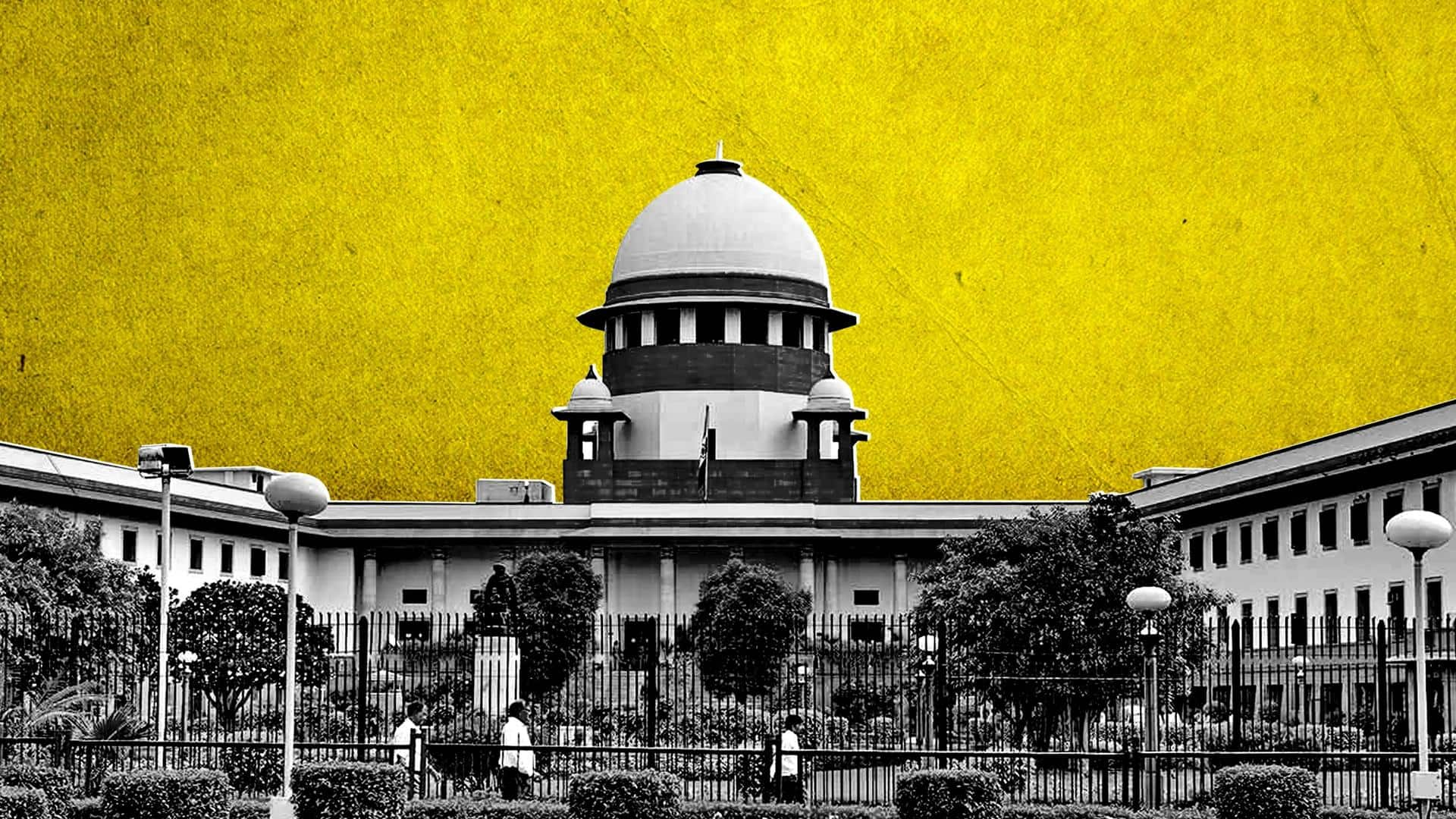
Supreme Court declares 10% EWS quota as constitutionally valid
What's the story
The Supreme Court on Monday held the Economically Weaker Sections (EWS) quota as constitutionally valid, noting that it wasn't discriminatory and didn't alter the basic structure of the constitution.
A bench led by Chief Justice of India UU Lalit gave the verdict on the 103rd Constitutional Amendment providing 10% reservations to the poorer strata of the "upper castes" in educational institutions and government jobs.
Context
Why does this story matter?
The constitutional amendment was cleared in January 2019 after the Bharatiya Janata Party (BJP) ruling at the Centre lost the Assembly elections in Chhattisgarh, Madhya Pradesh, and Rajasthan.
The EWS is dubbed as a key voter base for the BJP, and the quota apparently disrupted the pre-existing policy of affirmative action bestowed on communities historically marginalized on the basis of caste, religion, or tribe.
Information
No significant opposition from parties, but 40 petitions in SC
While most of the opposition parties did not raise any voice against the 103rd Constitutional Amendment, the top court heard as many as 40 petitions, including one by the state of Tamil Nadu—which has the highest reservation at 69%—against the EWS quota.
The petitions dealt with various aspects of the EWS quota, including the infringement of the SC's 1992 order capping reservations at 50%.
Details
EWS quota doesn't infringe Constitution based on 50% limit: SC
To recall, the EWS quota was challenged in the SC after it was passed in 2019.
The policy risked being scrapped had it been found to alter the Constitution's basic structure. The SC has found it doesn't change the same.
The bench also noted, "Reservations for EWS does not violate basic structure on account of 50% ceiling limit because ceiling limit is not inflexible."
Information
Parliament can't decide on basic structure as per 1973 SC order
However, in a 1973 order, the Supreme Court declared the Parliament could not decide on the basic structure of the Constitution, including the rule of law and separation of powers.
Shifting focus
EWS doesn't include poorer sections of SC, ST, and OBC
The 2019 amendment inserted Articles 15(6) and 16(6) in the Constitution for the 10% EWS quota, excluding Scheduled Castes (SCs), Scheduled Tribes (STs), and Other Backward Classes (OBCs).
The EWS quota shifts the focus to "class" from "caste," which has been the determining criterion for affirmative action.
Caste and class have remained historically intertwined on an absolute basis, with both markers often used interchangeably.
Background
Commission which recommended EWS quota formed by UPA
Notably, the EWS quota was based on recommendations of the Major General (Retired) SR Sinho commission submitted in July 2010. The panel was constituted in 2005 by the United Progressive Alliance (UPA) government.
It recommended that all families belonging to the general category who are below-poverty-line (BPL) or whose collective family income was below the taxable limit be identified as Economically Backward Classes (EBCs).